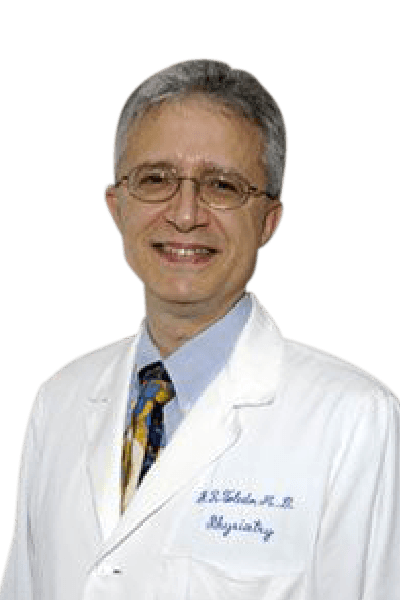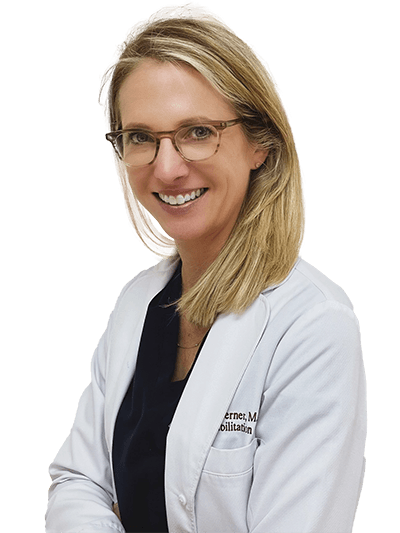Specialized Programs
As a major rehabilitation program with hundreds of patients seen each year, Mount Sinai offers a diverse range of rehabilitative therapies with highly specialized programs for patients facing different health challenges and recovering from procedures, injuries, or diseases.
Balance and Vestibular Rehabilitation
Balance problems, which often occur due to abnormal conditions of the inner ear, require vestibular rehabilitation. At Mount Sinai, our vestibular specialists help patients with dizziness, imbalance, vertigo, Meniere’s syndrome, benign paroxysmal positional vertigo (BPPV), neck-related dizziness, and migraines. Our balance program utilizes an exercise evidenced-based approach to improve balance and reduce problems related to dizziness and eye-hand coordination; improve neck motion; utilize postural awareness in order to regain proper functional abilities; and improve quality of life.
Cancer Rehabilitation
Our cancer rehabilitation program provides leading-edge care and support systems for our patients to maximize their recovery, which may include regaining motor skills, coordination, balance, and strength; improving cognition; and restoring daily function. Mount Sinai’s cancer rehabilitation program helps patients whose cancer or cancer treatment has led to certain conditions, such as the following:
- Fatigue
- Loss of muscle mass, decreased muscular strength, and endurance capacity
- Lymphedema
- Pain
- Polyneuropathy
- Swallowing deficits
Cardiac Rehabilitation
Mount Sinai’s renowned cardiac rehabilitation program offers medical assistance to those suffering from heart conditions or recovering from cardiac procedures such as open-heart surgery, valve repairs or replacements, cardiac catheterization, percutaneous transluminal coronary angioplasty (PTCA, or “stents”), and heart transplants or heart/lung transplants.
Patients in Mount Sinai’s cardiac rehabilitation program go through three phases of rehab:
- Phase I takes place while patients are still in the hospital
- Phase II starts after patients go home and begin to regain cardiopulmonary health
- Phase III also happens on an outpatient basis, where patients will seek to increase their aerobic activity and self-care skills
Hand Therapy
Mount Sinai’s highly specialized hand therapy program offers the expertise of a board-certified hand therapist, who works closely with your referring physician, or orthopedic or plastic surgeon who likewise specializes in hand and upper-extremity dysfunctions. The team uses leading-edge techniques to assess and treat pathological upper-extremity conditions resulting from trauma, disease, congenital or acquired nature, and custom splinting, to ensure maximal outcomes.
Long COVID Program
COVID-19 can have lasting effects that persist long after active infection. Long COVID symptoms range from shortness of breath to heart issues, to fatigue, and cognitive difficulties. These symptoms may be so debilitating that patients cannot return to work or normal life. At Mount Sinai, our team works with patients to create personalized rehabilitation programs that seek to achieve a full recovery. The Mount Sinai rehabilitation team often works in coordination with patients’ primary care, cardiology, psychiatry, and neurology providers. With the help of Mount Sinai’s expert physicians and experienced health care providers, our patients receive the person-centered approach and care they need to make full recoveries from long COVID.Lymphedema Management
Lymphedema, which causes swelling and discomfort often happening in the arms or legs. This usually occurs in patients who have undergone cancer surgery such as mastectomy, lumpectomy, or when lymph nodes are removed. Radiation therapy can also damage lymph vessels and nodes affecting the body’s ability to move fluid. Mount Sinai’s certified lymphedema specialists work closely with oncologists and the patients’ primary physicians to help reduce the acute swelling that results from decreased circulation. Treatment plans also include educating patients about managing and minimizing swelling to maintain function.
Orthopedic Rehabilitation
The Mount Sinai orthopedic rehab team works with patients with orthopedic conditions during the pre- or post-surgery phase, and nonsurgical conditions. The team focuses on assessing and treating patients to heal properly, improve strength, range of motion, and overall functional mobility and independence, caused by an injury to a bone, joint, tendon, ligament, or muscle; as well as providing education and training to sustain and extend the gains achieved during treatment. Our specialized team, in collaboration with the patient and physician, apply clinically evidence-based strategies and resources to develop a comprehensive plan to get patients back to their functional abilities. For patients suffering from back/spine (cervical, thoracic, and lumbar) and upper- and lower-extremity joint problems, in addition to our traditional approach, we offer specialized services through our Certified McKenzie Spine and Extremity Clinic. Mount Sinai Medical Center has the only certified clinic in South Florida since 2016. The McKenzie Method of MDT is a reliable approach intended for all musculoskeletal problems, including pain in the back, neck, and extremities. It actively involves the patient in its four cornerstones areas: assessment, classification, treatment, and prevention. This method not only provides education to the patient about what causes his or her pain, but also what activities the patient currently does that contribute to their pain.Our Physicians
Jose R Toledo, MD
- Physical Medicine & Rehab
- Mount Sinai Medical Center (Main Campus)
- 305.674.2121
- Mount Sinai Medical Center (Main Campus)
- 305.672.1256



